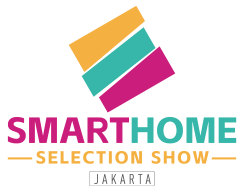Indonesia, the world's fourth most populous country, is rapidly emerging as a vibrant hub for the smart home industry. With a burgeoning middle class and a tech-savvy population, the Indonesian market presents a plethora of opportunities for international exhibitors. Here's an in-depth look at why Indonesia is the next frontier for smart home innovation and growth.
Market Overview
Indonesia's Smart Home market is projected to reach a revenue of US$556.5 million in 2024, with an expected CAGR of 11.93% from 2024 to 2028. This robust growth is fueled by a young population that is increasingly embracing technology to enhance their lifestyles. The market's segmentation includes Control & Connectivity, Security, Home Entertainment, Energy Management, Smart Appliances, and Comfort & Lighting, offering diverse opportunities for specialized products and services.
Expanding Middle Class and Urbanization
The expanding middle class and rapid urbanization are driving the demand for smart homes in Indonesia. Urban residents are looking for convenience, security, and energy efficiency, which smart home solutions can provide. The government's push for smart city development is further accelerating the adoption of smart home technologies.
Technological Advancements and Infrastructure
The advancement of 5G networks and IoT is enabling seamless integration of smart home devices. Indonesia's investment in digital infrastructure is creating a conducive environment for the deployment of advanced smart home systems. This technological leap is a significant draw for international exhibitors looking to showcase their latest innovations.
Consumer Behavior and Market Trends
Indonesian consumers are becoming more aware of the benefits of smart homes, leading to a shift in consumer behavior towards adopting such technologies. The growing trend of remote work and online education has further increased the demand for home automation and smart devices.
Government Support and Initiatives
The Indonesian government is actively promoting digital transformation and smart city projects, creating a favorable policy environment for the smart home industry. This support includes incentives for tech companies and the development of digital infrastructure.
Challenges and Opportunities
While the market presents vast opportunities, challenges such as infrastructure disparities, consumer education, and affordability remain. However, these challenges also represent areas for innovation and market differentiation, allowing exhibitors to tailor their offerings to meet local needs.
Post-Pandemic Market Dynamics
The COVID-19 pandemic has accelerated the adoption of smart home technologies as people spend more time at home. This trend is expected to continue even as the world moves towards a post-pandemic normal, offering sustained growth for the smart home market.
Competitive Landscape
Major players in the Indonesian smart home market include both local and international brands. The presence of global tech giants like Samsung, Google, Amazon, and Apple, along with local innovators, creates a dynamic market landscape ripe for collaboration and competition.
Conclusion and Call to Action
Indonesia's Smart Home Market is a dynamic and rapidly growing sector with significant potential for international exhibitors. The market's growth prospects, combined with the government's supportive policies and the country's digital transformation journey, make it an attractive destination for businesses looking to expand their global footprint.
For international exhibitors, participating in trade shows and expos in Indonesia is an excellent opportunity to connect with a burgeoning market, showcase cutting-edge products, and establish partnerships. By engaging with the Indonesian market, exhibitors can tap into a young, tech-savvy consumer base and contribute to the country's journey towards a smarter, more connected future.
The time is now for international exhibitors to explore the expanding opportunities in Indonesia's Smart Home Market. With its unique blend of market potential, consumer demand, and government support, Indonesia is poised to become a key player in the global smart home industry.

 简体中文
简体中文

